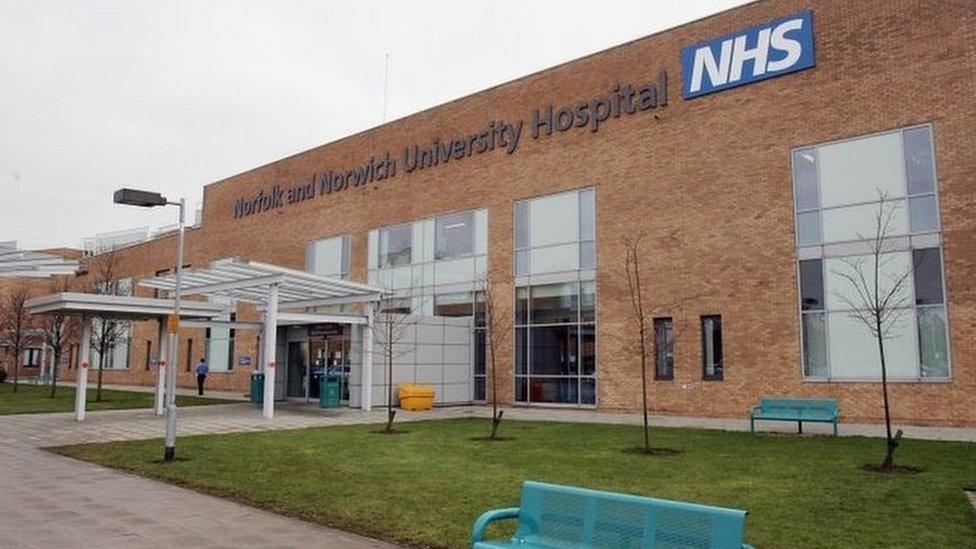Norfolk and Norwich Hospital University Hospital expands virtual ward
- Published
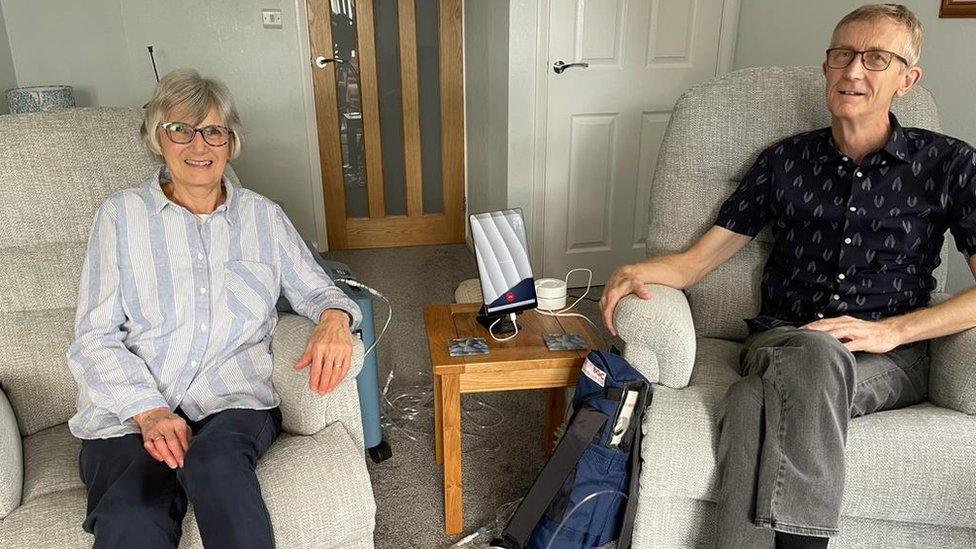
David Whitlock, pictured with his wife Carol, is receiving virtual hospital care at home
A hospital looking at different ways to ease pressure on beds is to expand its virtual ward.
The Norfolk and Norwich University Hospital (NNUH) is among the first in the country to use technology to help patients continue treatment at home.
The hospital said some 40 patients were currently receiving virtual care.
Medical director Prof Erika Denton said it meant resources and staff could be better deployed to patients with more complex medical needs.
David Whitlock, 67, from Diss, who spent time in the hospital after being diagnosed with serious Covid symptoms, is now being cared for remotely.
'You've got to fight this'
Mr Whitlock has non-Hodgkin's lymphoma, so even though he is double-jabbed, his immune system is low.
"I remember one consultant getting down by the side of the bed and just simply saying 'You've got to fight this,'" he said.
He was admitted to the NNUH on 11 October and three weeks later was sent home to continue his treatment.
He has spent five days of the past week hooked up to oxygen.
An armband monitors his vital signs - body temperature, pulse rate, respiration rate and blood pressure - sending the information digitally to the hospital.
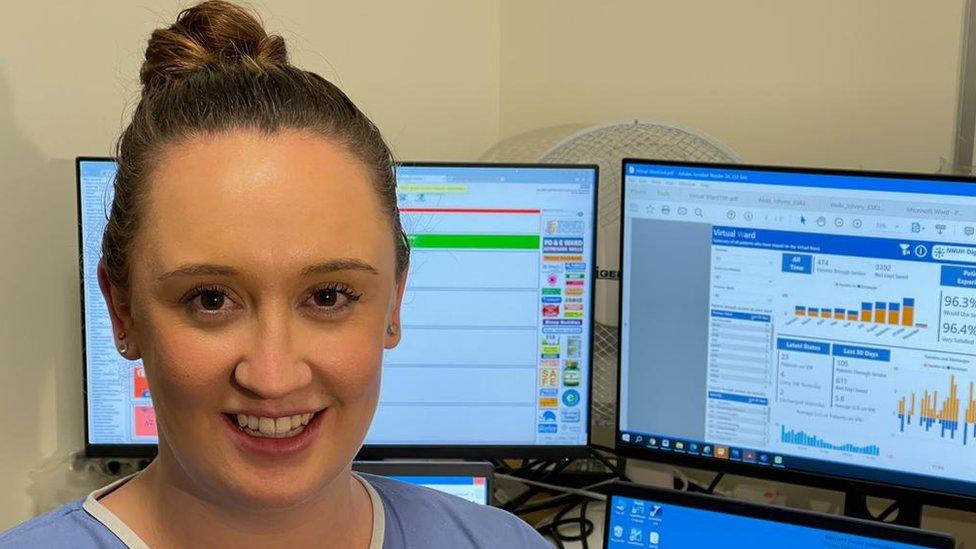
Virtual ward nurse Rose Cary has been monitoring and speaking to Mr Whitlock twice daily
His observations are then assessed by medics and Mr Whitlock receives twice-daily calls from a nurse.
Virtual ward nurse Rose Cary, who has also worked as an emergency ward nurse said it was very important to keep bed capacity available.
She said being able to get patients home early "but still have that continuous monitoring" was "a great situation for everyone to be in".
'I was a bit surprised'
Mr Whitlock's wife Carol, 67, said she was concerned initially about the hospital treating her husband from home.
"I was a bit surprised, I guess. Was I going to cope? Would he get the support he needs or is it all going to be down to me?" she said.
"But actually, as it progressed, all my fears were allayed."
Mr Whitlock said he, too, had to be persuaded about moving out of the security of the hospital.
"But the more I thought about it, the more I liked the idea. The hospital is brilliant but it's not like being at home," he said.
The NNUH has since been delivering equipment to some 40 patients at home.
"It means those patients are not occupying in-patient beds with us, and of course, for most of us, we don't want to be in a hospital bed, we'd rather be at home," said Prof Denton.
"So if we're not in need of active nursing and medical care, this is fantastic."

Find BBC News: East of England on Facebook, external, Instagram, external and Twitter, external. If you have a story suggestion email eastofenglandnews@bbc.co.uk, external
Related topics
- Published4 November 2021
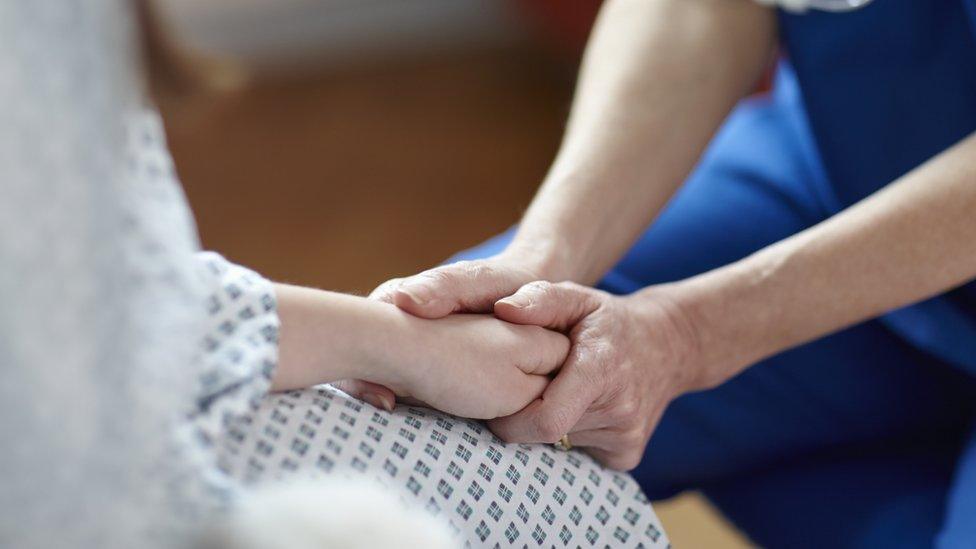
- Published15 October 2021
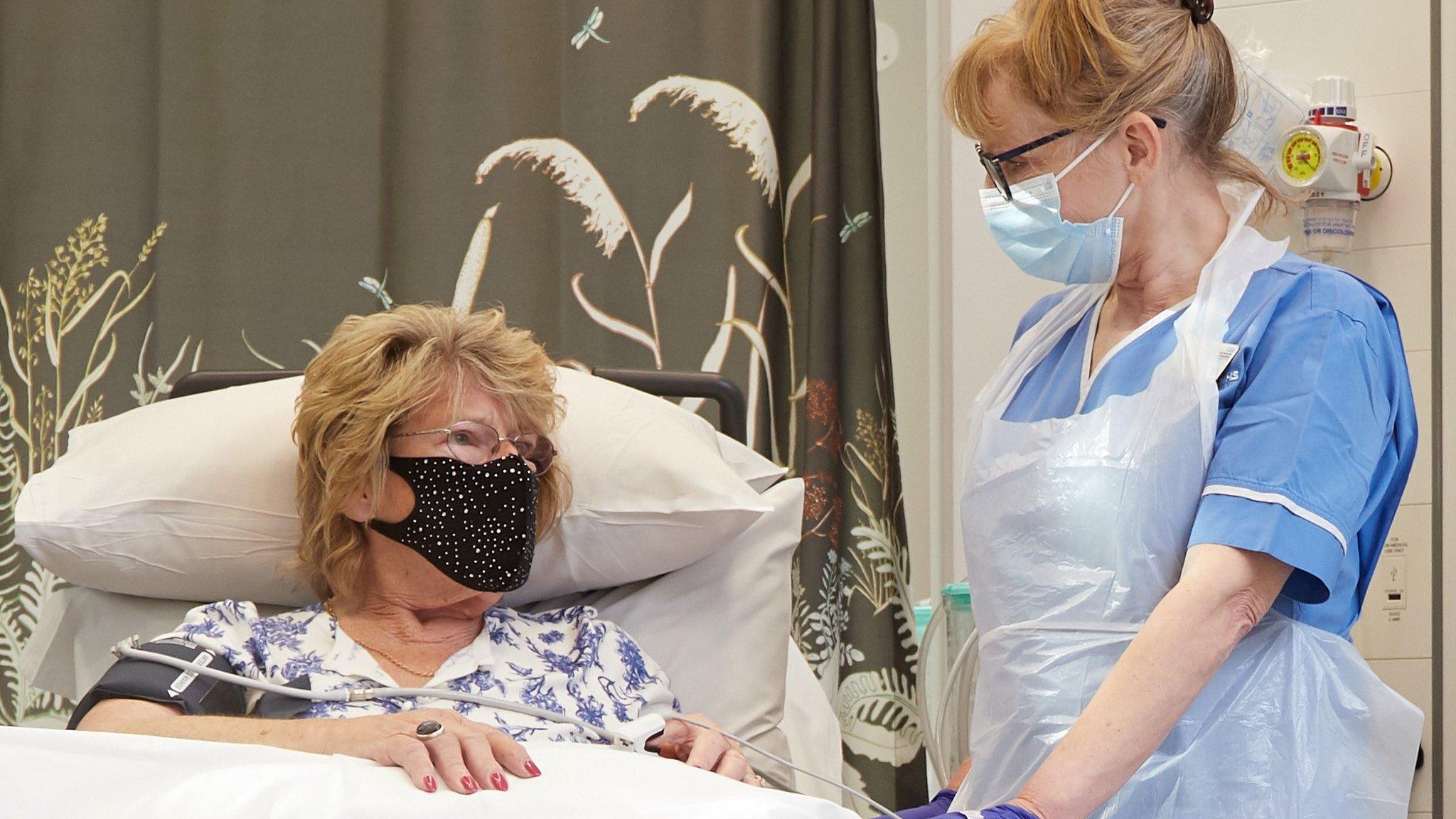
- Published7 October 2021
